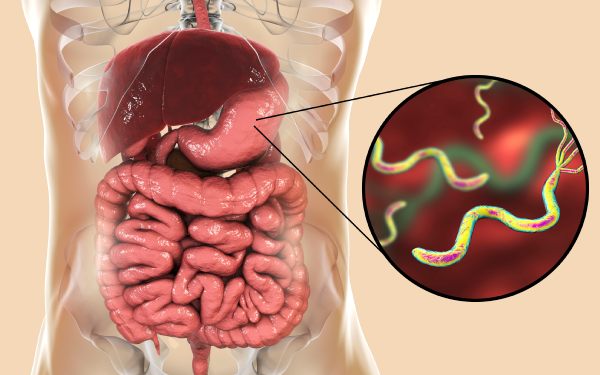
Helicobacter Pylori Testing
Your doctor may recommend you have testing for Helicobacter pylori if you have any of the following problems:
- Peptic ulcers disease (stomach or duodenal ulcers)
- Abdominal pain that’s worse when you stomach is empty
- Nausea
- Loss of appetite
- Frequent burping
- Bloating
- Unintentional weight loss
How can I be tested for H. pylori?
- Breath testing: This is a simple and effective test. H. pylori infection in the stomach converts a naturally occurring substance called urea into the gas carbon dioxide. If specifically labelled urea is swallowed, labelled carbon dioxide can be detected for a short time in the breath. This test is available at the Cambridge Specialist Centre.
- Blood test for H. pylori antibodies: This test can detect current or recent infection. This test can remain positive for several years after successful treatment so it is not usually recommended.
- H. pylori faecal antigen testing: A stool sample can be tested for active H. pylori infection.
- Gastroscopy: During a gastroscopy the specialist can take small samples (biopsies) from the lining of the stomach which are sent to the laboratory for analysis. This test is very accurate.
Acid suppressing medications known as proton pump inhibitors (PPIs), such as omeprazole, lansoprazole and pantoprazole, can interfere with the accuracy of breath testing and faecal antigen testing. Your doctor will ask you to stop taking those medications for a week or two before the test.
How is H. pylori treated?
Treatment of H. pylori is usually ‘triple therapy’ which includes an ulcer healing medication (PPI) and two antibiotics. The success rate is 90% if taken as directed.
Eradication can be checked through either a breath test, stool test or re-biopsy. These tests are performed at least four weeks after treatment has finished.

Contact Us
Booking a consultation
Get in touch today with one of our team and we’ll arrange a time that suits you to see one of our specialists.

 07 444 4600
07 444 4600 email us
email us